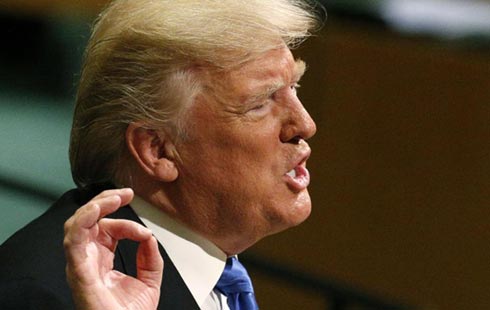US summit on cross-border e-trade
A group of Chinese and US experts on cross-border e-trade and financing gathered on Sunday to talk about how technology could improve collaboration and transactions between the world's two largest economies.
Zhang Bin, chief executive of Beijing-based Union Mobile Financial Technology, brought a team whose members each have more than 10 years of experience in China's finance and mobile-payment technology to meet with US residents in Silicon Valley at a Sino-American cross-border trade and technology summit.
"As a beneficiary in China's mass entrepreneurship and innovation movement, UMF now wants to give back to society and our successors," said Zhang, adding that he has been an observer as a national campaign kicked off in 2015 encouraging individuals to start businesses and cultivate the spirit of innovation in China.
Established in 2003, UMF was listed on the Shenzhen Stock Exchange in 2016. It has two wholly owned subsidiaries - Union Mobile Pay e-Commerce and Umpire International (US) - partners with more than 110 financial institutions and more than 3,000 large enterprises and provides payment and cross-border services for 700,000 small and medium-sized enterprises and 450 million individual users.
"The total transactions through our payment platforms surpassed $130 billion last year," Zhang said.
Thomas Layman, president and chief executive of Global Vision Group, based in San Mateo, California, acknowledged the potential is vast for cross-border trade and e-payments.
"The opportunities for new and existing players in supporting cross-border payments continue to grow, especially for low-value, e-commerce payment," he said at the summit.
Frank Tong, China director of e-commerce publisher Internet Retailer, said there are approximately 300 licensed third-party payment providers in China, many of which are authorized to facilitate online payments.
UMF has been issued a payment business license by the People's Bank of China for nationwide internet payments, mobile phone payments and bank card acceptance.
Technology is evolving that will accommodate the emergence of faster, more reliable, more transparent and less expensive options for cross-border payments and remittances, according to Layman.
"The biggest opportunity for (business-to-business) cross-border payments is in the small and medium-sized business sector," Layman said.
As for business-to-customer payments, "Currently, 55 percent of China's internet users have made a mobile payment versus only 19 percent of internet users in the US," Layman said.
Zhang and his team keep identifying new territories in overseas markets and have established footholds in the United States and Canada.
"We utilize new technology, such as AI, blockchain, cloud and big data, to provide our customers not only cross-border payment services but access to China's 500 million e-commerce shoppers," he said.



























